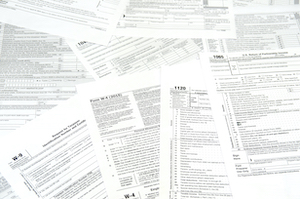The IRS has issued 2024 versions of Form 1099-R and 5498, as well as their instructions. These forms are used to report information concerning contributions and distributions, including those involving IRAs. 
The IRS issued the forms as drafts—they are informational and not to be used for filing.
Form 1099-R
Form 1099-R, Distributions From Pensions, Annuities, Retirement or Profit-Sharing Plans, IRAs, Insurance Contracts, etc., is used to report the total annual distributions from those accounts—including IRAs, designated Roth accounts, and income tax withholding and distributions from a 457(b) governmental plan to a participant or beneficiary.
Form 5498
Form 5498, IRA Contribution Information, is submitted to the IRS by the trustee or issuer of an IRA to report contributions, including any catch-up contributions, rollovers, repayments, required minimum distributions (RMDs), as well as the fair market value (FMV) of the account.
What’s New for 2024
The updated instructions for Forms 1099-R and 5498 outline the changes that have been made for 2024.
Corrective distributions. Certain corrective distributions are not subject to 10% early distribution tax. Beginning on Dec. 29, 2022, the 10% additional tax on early distributions will not apply to a corrective IRA distribution, which consists of an excessive contribution (that is, a contribution greater than the IRA contribution limit) and any earnings allocable to the excessive contribution—as long as the corrective distribution is made on or before the due date (including extensions) of the income tax return.
Disaster tax relief. Special rules that provide for tax-favored withdrawals and repayments now apply to disasters that occur on or after Jan. 26, 2021.
E-filing returns. T.D. 9972, published Feb. 23, 2023, lowered the e-file threshold to 10 (calculated by aggregating all information returns), effective for information returns required to be filed on or after Jan. 1, 2024.
Required minimum distribution (RMD) age. The SECURE 2.0 Act raised the age for RMDs to 73.
Information Reporting Intake System (IRIS). The IRS has developed IRIS, an online portal that allows taxpayers to file information returns electronically after Dec. 31, 2022, for 2022 and later tax years.
- Log in to post comments
